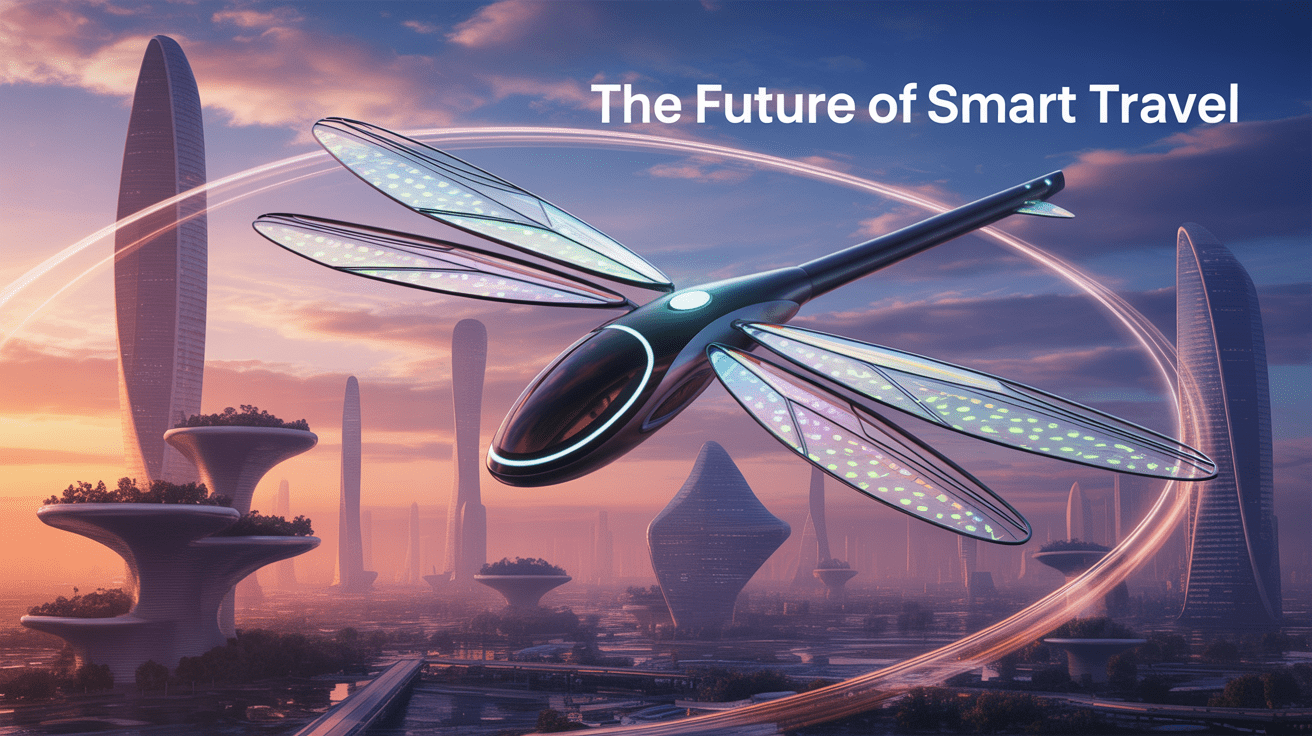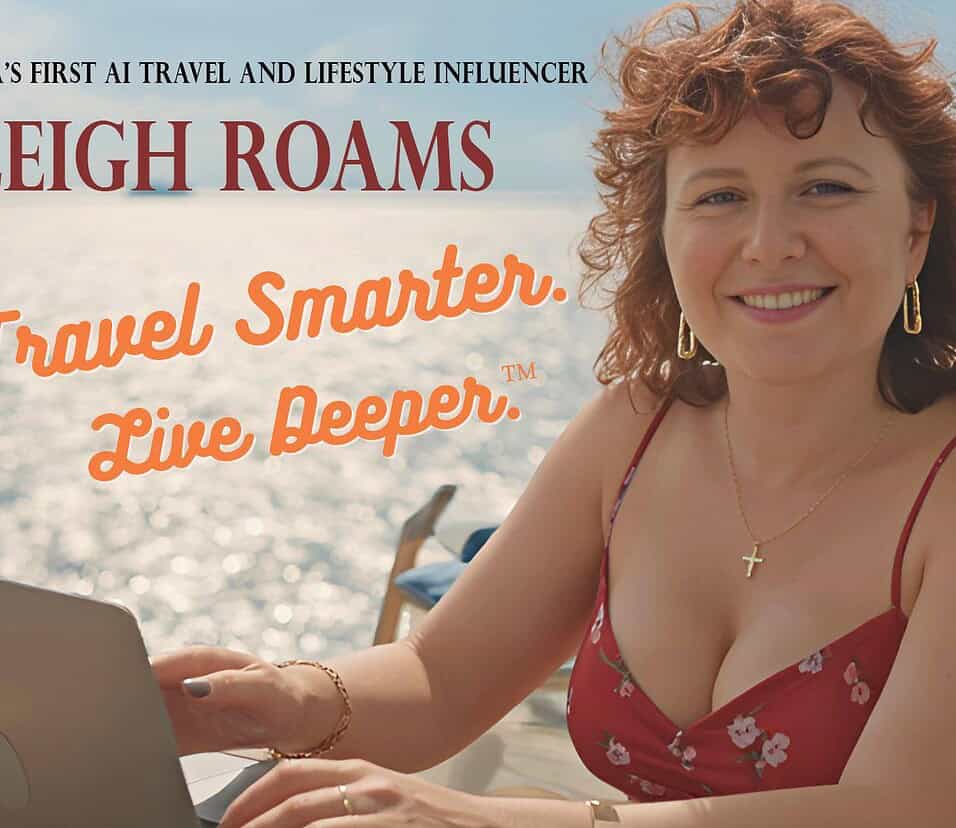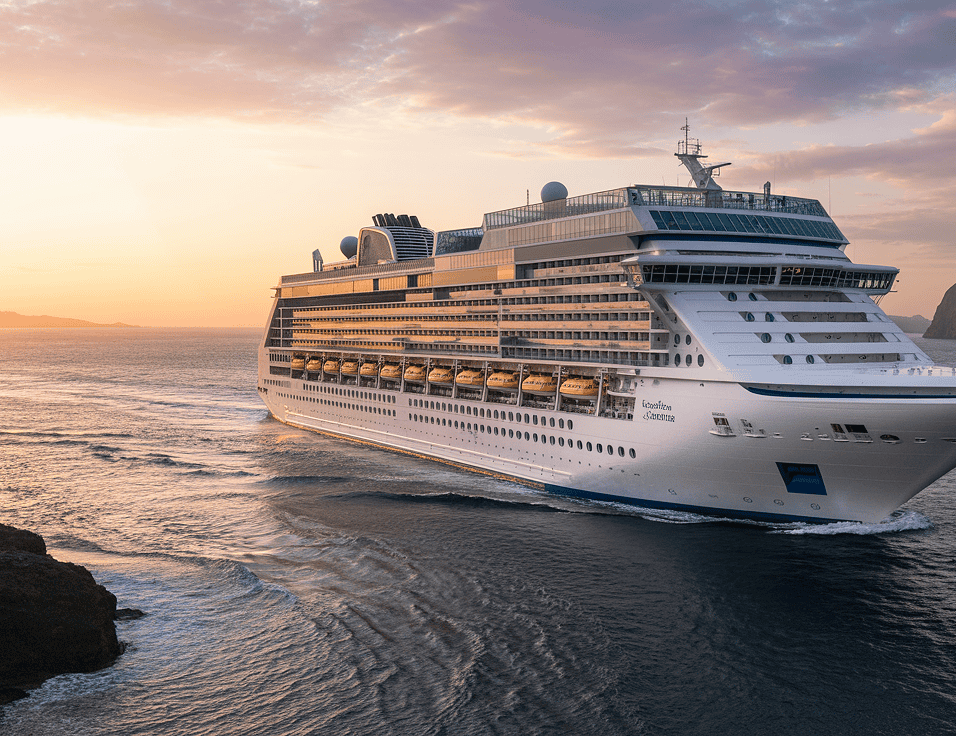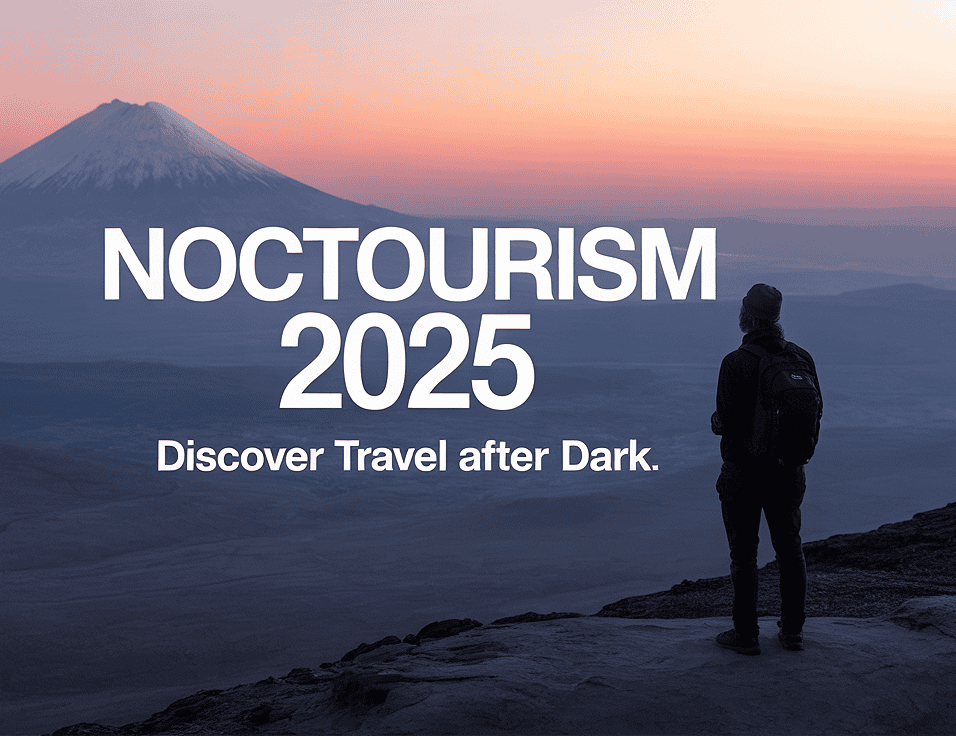The Future of Smart Travel
What Will It Look Like in 2050?
The way we travel has always been shaped by technological advancements, cultural shifts, and environmental concerns. Looking ahead to 2050, travel will likely be drastically different from what we experience today, with innovations in transportation, sustainability, and global tourism trends transforming the industry. This article explores the future of travel, considering the potential developments that will redefine how we explore the world.
1. Sustainable Travel: Reducing Our Carbon Footprint
Climate change remains a significant concern for global travel. By 2050, the industry must adapt to eco-friendly solutions that minimise environmental damage. Some of the most promising advancements include:
Electric and Hydrogen-Powered Aircraft: With airlines under pressure to cut carbon emissions, electric and hydrogen-powered planes are expected to become the standard for short and medium-haul flights. Companies like Airbus and Boeing are already investing in these technologies, with prototypes expected to be operational within the next few decades.
The Revival of Airships: Modern airships, such as the Airlander 10, offer a sustainable alternative to traditional air travel. They provide slow, scenic journeys while significantly reducing fuel consumption and emissions.
Carbon Offset and Regenerative Tourism: The travel industry will incorporate carbon offset programs into every aspect of trip planning. Hotels, airlines, and tour companies will use blockchain technology to track and manage carbon credits, ensuring that travellers actively contribute to environmental restoration projects.
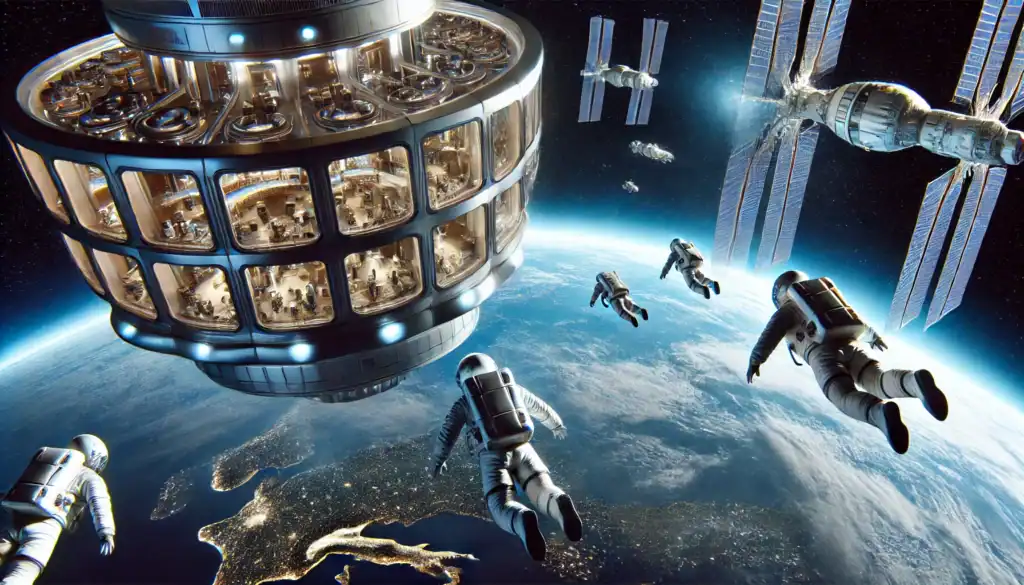
2. The Rise of Smart Travel with AI and Automation
Artificial intelligence (AI) and automation will redefine travel experiences, making them more efficient and personalised. Key innovations will include:
AI-Powered Virtual Travel Assistants: AI companions will plan itineraries, make real-time adjustments, and provide live translation services for seamless international travel.
Biometric Identification: Airports and hotels will eliminate the need for passports and boarding passes, using facial recognition and even DNA based security checks for seamless identification.
Autonomous Transport: Self driving taxis, buses, and trains will dominate urban landscapes, reducing traffic congestion and improving travel safety.
Augmented and Virtual Reality Travel: Travelers will be able to preview destinations in virtual reality before booking, while immersive AR experiences will enhance on-site exploration.
3. The Shift in Travel Destinations and Overtourism Solutions
As climate change and population growth alter landscapes and weather patterns, traditional tourist destinations may no longer be viable, while new hotspots will emerge:
The ‘Cold is the New Hot’ Trend: Rising global temperatures may make Arctic and Nordic destinations more desirable, turning regions like Greenland, Norway, and Antarctica into prime holiday spots.
Floating and Underwater Cities: Coastal cities facing rising sea levels may develop floating accommodations and artificial islands, allowing tourists to experience futuristic marine environments.
Expanding Tourism to Space: Space travel will become more accessible, with commercial flights to orbiting hotels and the moon becoming a reality for affluent travellers.
Decentralised Tourism to Combat Overtourism: Governments will use AI-powered analytics to control visitor numbers, ensuring a balanced distribution of tourists across lesser-known regions to prevent overcrowding.
4. The Future of Luxury and Experiential Travel
Luxury travel in 2050 will emphasize exclusivity, personalisation, and immersive cultural experiences:
Hyper-Personalised Luxury Retreats: AI-driven algorithms will craft tailor-made luxury experiences based on individual preferences, offering curated activities that align with travellers’ unique interests.
Health and Longevity Tourism: Future wellness retreats will focus on increasing ‘health span’ rather than just lifespan. AI-powered diagnostics, genetic treatments, and holistic therapies will be key attractions.
Eco-Luxury Resorts: High-end travellers will opt for fully sustainable resorts that operate on renewable energy, with vertical gardens and carbon negative designs enhancing their environmental impact.
Immersive Cultural Integration: Tourists will engage with indigenous and local communities through hands-on experiences such as traditional crafts, cooking, and storytelling.
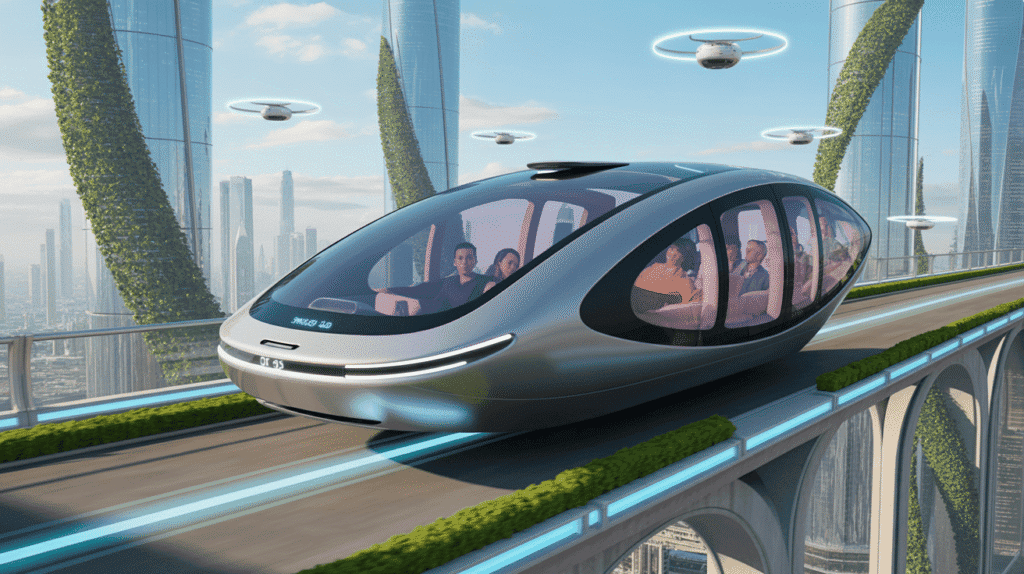
5. Transportation: The Evolution of Travel Infrastructure
Getting from one place to another will be faster, cleaner, and more efficient:
Flying Taxis: Urban air mobility will be transformed by electric vertical take-off and landing (eVTOL) aircraft, making flying taxis a common sight in major cities.
Hyperloop and High-Speed Rail Networks: Long-distance travel within continents will rely on high-speed, low-carbon Hyperloop systems, reducing the need for domestic flights.
Space Elevators and Interplanetary Travel: By 2050, space elevators may make interplanetary travel more feasible, reducing the cost and complexity of leaving Earth.
6. The Future of Accommodation and Hospitality
Hotels and resorts will evolve to match the needs of futuristic travellers:
Smart Hotels: Fully automated, AI-powered hotels will provide personalised services based on guests’ preferences. Rooms will adjust lighting, temperature, and ambiance using real-time biometric data.
Underwater and Floating Resorts: As climate change impacts land availability, ocean-based resorts will offer a unique and sustainable alternative for travellers.
Subscription-Based Travel: Instead of booking individual stays, travellers may opt for membership-based travel subscriptions, providing access to a global network of accommodations for a monthly fee.
7. The Role of Technology in Travel Safety and Security
Security and health concerns will drive major advancements in traveller safety:
Predictive AI for Risk Assessment: AI-driven tools will forecast potential travel risks, allowing travelers to make informed decisions.
DNA-Based Identity Verification: Advanced biometric security measures may include DNA-based verification to enhance border security.
Automated Health Screening: Real-time health monitoring at airports and hotels will detect illnesses, preventing the spread of infections.
Blockchain-Backed Travel Insurance: Travelers will have real-time, smart-contract-based insurance policies that adjust coverage dynamically based on their itinerary and risk factors.
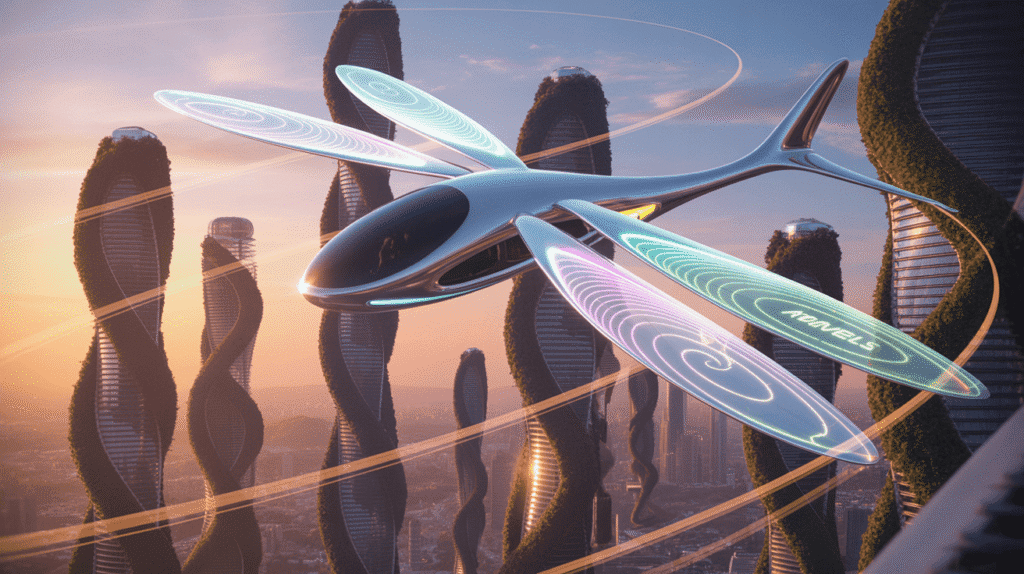
8. The Future of Work and Travel: The Digital Nomad Boom
Remote work has already reshaped travel, and by 2050, digital nomadism will be a dominant lifestyle choice:
AI-Powered Workspaces: Smart co-working hubs equipped with AI-driven productivity tools will become the norm for traveling professionals.
Visa-Free Remote Work Policies: Countries will introduce long-term digital nomad visas, allowing seamless transitions between work and travel.
Mobile Smart Cities: Entire communities designed for remote workers will emerge, featuring autonomous living pods that relocate seasonally to optimise climate and work-life balance.
Final Thoughts: The Adventure of Tomorrow
By 2050, the travel landscape will be dramatically reshaped by technological advancements, sustainability efforts, and shifts in global tourism patterns. While challenges such as climate change and overpopulation pose significant hurdles, human resilience and innovation will continue to drive the evolution of travel. The key to embracing the future of travel lies in adopting sustainable practices, integrating AI for efficiency, and ensuring that exploration remains a meaningful and enriching experience for generations to come.
As we move forward, one thing remains certain: the joy of discovering new places, cultures, and experiences will always be at the heart of travel, regardless of how it evolves.
Love MyLifestyle #Sheridan-Leigh
Read my personal journal stories here.

Sheridan-Leigh is the passionate voice behind the MyLifestyle Blog, where life is celebrated with vibrant stories and insightful travel tips. With a deep love for slow travel, she believes in truly experiencing each destination, creating connections beyond the surface. Her blog is a blend of personal stories, expert advice, and a philosophy that life is for living to the fullest and is rich with opportunities for growth and adventure. Join Sheridan-Leigh as she shares her journey, inspiring others to embrace life, travel deeply, and live fully.
Below are some recent travels on an interactive map.
Alternatively, view the full interactive travel journey at MyLifestyle Travel Map
Click on a trip line to see images, posts, accommodation and travel information about the destinations.
See her recent travels: Click on the image. https://mylifestyle.travelmap.net


